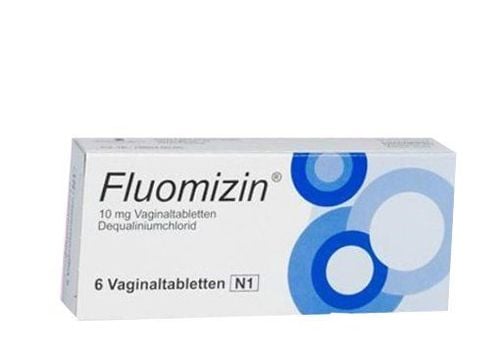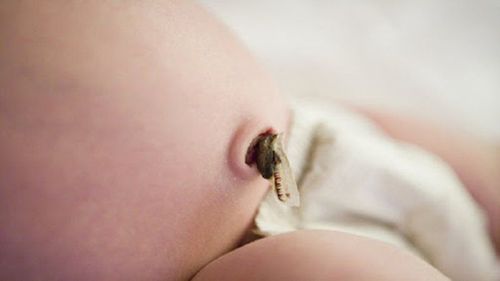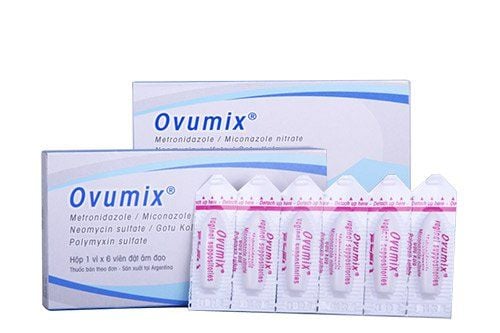Due to its unique structure, the belly button is a haven for various bacteria, fungi, and dirt. If not cleaned regularly, this area can become a breeding ground for microorganisms, leading to unpleasant odors. Let’s explore the causes of belly button odor in detail.
1. Causes of Belly Button Odor
1.1. Poor Hygiene
Poor hygiene is the most common cause of belly button odor. Like other body parts, the belly button requires regular and proper cleaning to stay healthy and odor-free.
Most belly buttons are recessed, resembling a pocket that collects dirt, sweat, and dead skin cells. The deeper the navel, the greater the risk of accumulating bacteria and debris. Scientific studies show that the belly button can harbor nearly 70 different types of bacteria and fungi. Without proper and regular cleaning, it can become a hotspot for microbial growth. The combination of microorganisms, dirt, dead skin, and sweat trapped in the navel contributes to the unpleasant odor.

1.2. Candida Yeast Infection
Scientific research indicates that Candida yeast is a significant cause of belly button odor. Candida thrives in warm, moist, and dark environments, such as the armpits, groin, and belly button, especially if the area is not cleaned regularly.
Candida overgrowth can also occur in the mouth and throat (causing oral thrush) and in the vagina (leading to yeast infections). It can even cause intertrigo, a skin condition affecting folds like the navel, groin, armpits, and between fingers and toes. Affected skin may appear red, scaly, and develop itchy or painful blisters.
People with diabetes are more prone to Candida infections due to high blood sugar levels, which weaken the immune system and reduce the body’s ability to fight infections.
1.3. Belly Button Infections
Infections due to procedures like umbilical hernia treatment or belly button piercings can lead to unpleasant odors. Signs of infection include discharge with a foul smell, pain, swelling, warmth, and tenderness around the navel. If these symptoms occur, seek medical attention for proper diagnosis and treatment.
1.4. Hair Follicle Cysts and Epidermoid Cysts
Hair follicle cysts are characterized by the abnormal growth of a large cyst in the skin's hair follicles, while epidermoid cysts are located in the uppermost skin layer. Both types can contain a thick, yellowish substance that releases a foul smell if the cyst ruptures. These conditions can also occur around the navel, leading to odor and possible infections. Medical evaluation and treatment are recommended in such cases.
1.5. Sebaceous Cysts
Sebaceous cysts, also known as keratin cysts, are small, hard lumps under the skin. Although less common than hair follicle or epidermoid cysts, sebaceous cysts can cause pain and odor around the belly button.
2. How to Handle Belly Button Odor
If poor hygiene is the cause of the odor, changing your cleaning habits is essential to clean the belly button properly and regularly.

If the odor is accompanied by discharge, blood, or symptoms like fever, abdominal pain, painful urination, or redness and swelling around the belly button, seek medical attention for accurate diagnosis and treatment.
Key Tips for Managing Belly Button Infections:
- Keep the belly button dry and clean.
- Avoid wearing tight, damp, or dirty clothing, as it can trap sweat and dirt.
- Limit sugar intake, as high blood sugar levels increase infection risk.
- If the infection is due to a piercing, remove the jewelry and clean the area with a cotton swab dipped in antiseptic solution, hydrogen peroxide, or antibacterial soap. Ensure the area is dry and avoid tight clothing to prevent irritation.
3. Proper Belly Button Cleaning Tips
Regular and thorough cleaning of the belly button can prevent the growth of harmful microorganisms. Consider the following guidelines:
- Daily Cleaning: Use antibacterial soap on a washcloth to gently clean the belly button. Rinse thoroughly with water and dry the area to avoid moisture buildup. Avoid applying excessive amounts of lotion or sunscreen around the navel, as this can promote bacterial growth.
- Cleaning Pierced Belly Buttons: Keep the area dry and clean by gently washing it with a solution of water and antibacterial soap. Clean jewelry with antiseptic solution before reinserting to prevent infections.
- Cleaning Infected Belly Buttons: If the belly button shows signs of infection (discharge, redness, swelling, or pain), follow your doctor’s treatment plan and consider these steps:
- Wash your hands thoroughly before cleaning the belly button.
- Use a cotton swab or soft cloth soaked in an antiseptic solution, hydrogen peroxide, or potassium permanganate to clean the navel gently.
The belly button is prone to accumulating dead skin cells and dirt, which can lead to unpleasant odors. Proper daily hygiene can resolve this issue effectively. Hopefully, this guide provides helpful insights on cleaning and managing belly button odor.
Please dial HOTLINE for more information or register for an appointment HERE. Download MyVinmec app to make appointments faster and to manage your bookings easily.













